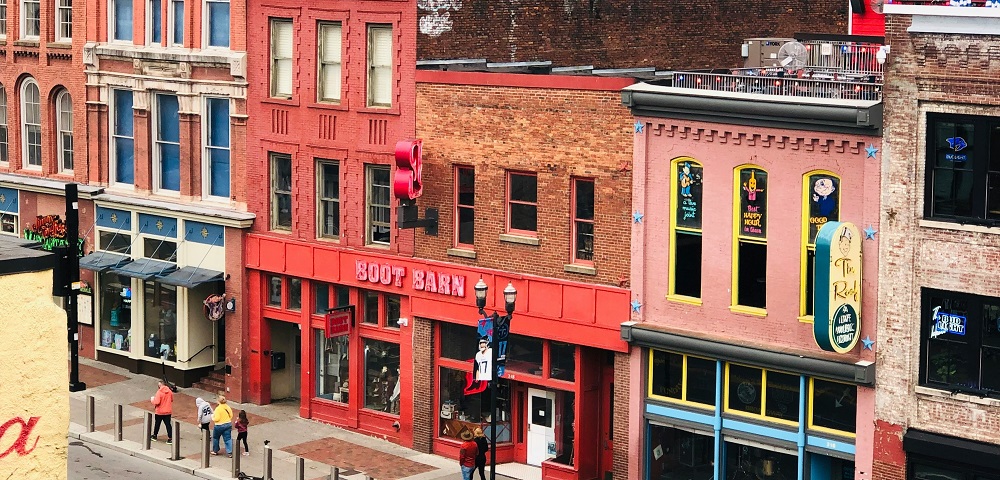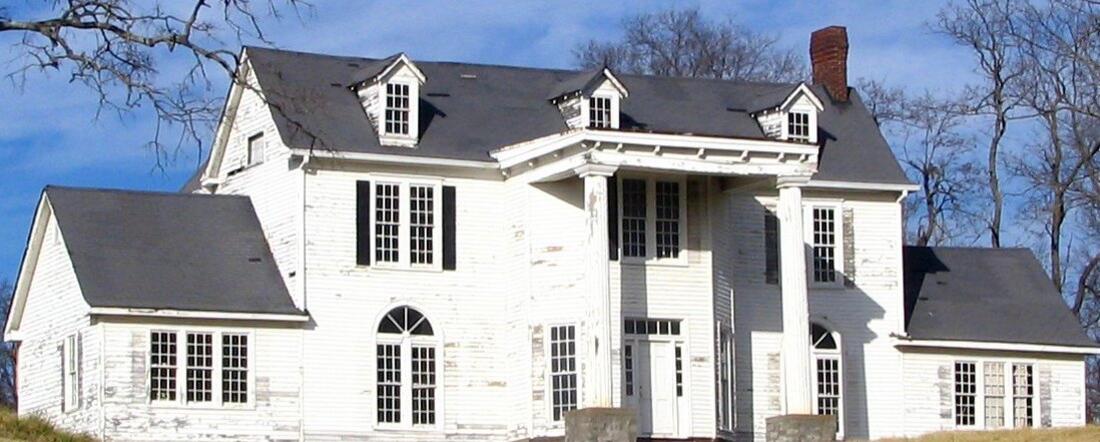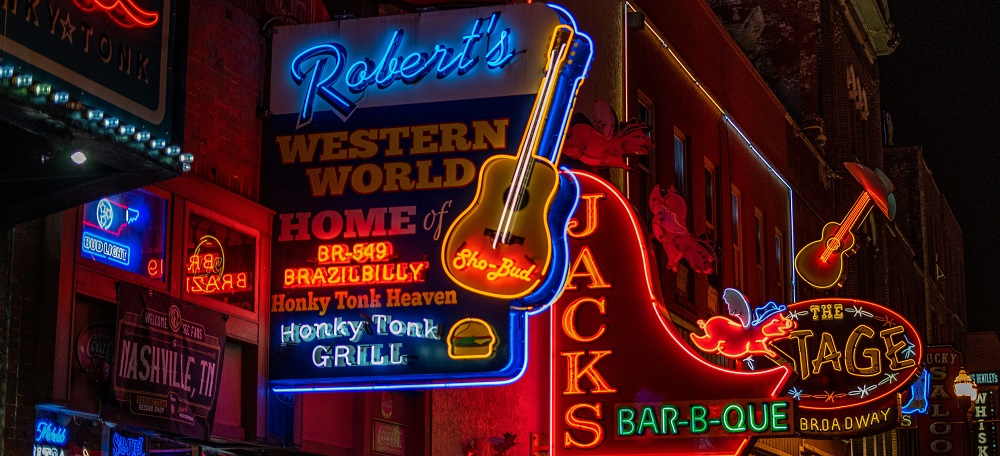Accommodation in Nashville is plentiful, with various property types available. Nashville’s property market is flourishing thanks to the economic growth of the city and the influx of new residents.
Most long-term residents don’t live anywhere close to downtown Nashville. A major advantage of this is that they have access to larger, more spacious homes and get more wiggle room when deciding exactly what they are looking for.
Areas and suburbs in Nashville

Home to more than 20 neighbourhoods, Nashville offers its residents areas and suburbs with unique characters and amenities. Whether newcomers are young professionals, students or a multi-generational family, there is something to suit everyone.
Young professionals and students seeking a walkable neighbourhood close to downtown should consider The Nations. As a former industrial area, The Nations has undergone revitalisation over the last decade and has become a sought-after neighbourhood. Recognised as one of Nashville's best neighbourhoods, East Village is a short walk away from downtown Nashville. The neighbourhood is a hub of creative energy that attracts trendy young professionals who love the hip cafés and art galleries. The Gulch and 12 South are other neighbourhoods for young professionals to explore.
The options for families are endless as well, with neighbourhoods such as Franklin, Spring Hill, and Green Hills topping the list. These neighbourhoods are all home to good schools and beautiful, spacious homes on tree-lined streets. Others, such as Green Hills, boast a variety of housing styles, including historic Victorian homes and modern new builds catering to young families.
Read Areas and Suburbs in Nashville to learn more about the city's top neighbourhoods and areas to avoid.
Types of property in Nashville
One thing that can be said about housing in Nashville is that it is spacious across the board. Whether new arrivals are young professionals looking for a downtown apartment, luxury condo, or a family looking for a comfortable home with a garden, they'll likely find a larger property than they might be used to in Nashville.
Apartments
Apartment living tends to be most common close to the downtown area. Although most long-term Nashville residents opt to move to the suburbs for a better quality of life and more space, apartments are a good choice for young people who may be just starting out in Nashville. Generally, apartment complexes in Nashville are modern and well-maintained.
Condos
Condos are similar to apartments but with a wider range of communal facilities such as gardens, swimming pools, fitness centres and laundry facilities. Condo living is a great option for those who’ve just moved to Nashville, as there is a noticeable sense of community in these complexes, which is likely to be conducive to helping newcomers establish a social circle.
Duplexes
Duplexes and fourplexes are a type of housing that is commonly seen in Nashville. The house plans consist of either two or four living units attached to each other in some manner. These are often found in areas located close to central Nashville areas, such as Germantown, Vandy and West Nashville.
Houses
Prospective Nashville residents will be spoilt for choice when it comes to houses. Sure, one will need to move further away from the city centre for the best options, but that won’t be a problem when you consider the scope of some of these stunning properties.
Newcomers will have their pick of houses with a minimalist modern design, classic Victorian homes and Cape Cod-style properties, and these are just a handful of the numerous housing types on offer in Nashville. Regardless of the facade, houses in Nashville are spacious and offer good value for money.
Finding property in Nashville

Housing is readily available in Nashville, with new buildings constantly springing up to accommodate the thousands of new residents relocating to Music City each year. That said, we recommend prospective residents use online property portals to familiarise themselves with Nashville’s property market before the planned relocation. The internet is a fantastic starting point because one can get to grips with the property types available in various parts of the city and their prices.
Other factors that prospective residents of Nashville must consider when looking for property in Nashville include access to important transport routes, the amenities, and shopping hubs, proximity to places of work. For those who have children, the location of good schooling options is essential.
Real-estate agents are another reliable source of support for those looking for a home in Nashville. These professionals have an intimate knowledge of the local real estate market, so they are well-placed to help those unfamiliar with the city find a suitable home in line with their requirements and personal preferences.
Useful links
Renting property in Nashville
Once new arrivals have narrowed down their preferences regarding the type of housing and suitable suburbs, finding a property shouldn’t be too difficult. While the demand for property in Nashville is high, a lot of construction is taking place to meet this demand.
Making an application
When prospective tenants have found a property they like, they must start by filing an application. Depending on the situation, they can do this directly through the landlord or the agent overseeing the property. A lease can be signed once all the relevant checks and references are verified. Foreign nationals moving to Nashville will benefit from having their US bank account and social security number set up, as this will speed up the whole rental process.
Leases, costs, and fees
A standard rental contract in Nashville is usually valid for a year, with the option to renew at the end of the initial term. Depending on where in the city one hopes to put down roots, it may also be possible for tenants to negotiate a shorter lease.
As is the case in most places, tenants will be required to put down a security deposit when renting a property in Nashville. Although this deposit is typically equivalent to one month's rent, Tennessee law doesn’t actually place any limits on the amount. It does state that the deposit minus any deductions for damages must be returned within 30 days of the contract ending. New tenants are advised to make a detailed inventory at the start and end of a rental period.
Read Accommodation in the USA to learn more about rental processes in the country.
Utilities in Nashville
Renters must carefully check the terms of their lease to determine which utilities are included and what additional expenses they’d be liable to pay for. In most instances, the landlord covers standard utilities such as gas, electricity and water, while tenants must pay for telephone services, internet, and TV. Tenants whose landlords will not pay for their utilities must put the utility accounts in their names.

Electricity
Nashville Electric Service (NES) supplies the electricity in Davidson County. To start a service or transfer an account into your name, newcomers can call or visit their local NES office with their identity document and social security number to fill out an application. Those who will be starting a service will be required to undergo a credit check.
If the credit check is successful, they won't be required to pay a security deposit. The security is typically credited to your account after 12 satisfactory payments. Those who are transferring a service will charged a minor connection fee. Newcomers can also pay their bills on the NES website with no service fees.
Gas
To connect mains gas or transfer an existing account, newcomers can contact Piedmont Natural Gas, which is Nashville's main supplier. New arrivals can request to start a service online on Piedmont Natural Gas's website, but they must ensure their electricity and water are turned on first.
Those who do not have satisfactory credit scores will be charged a deposit, usually equivalent to a two-month bill. Similarly to electricity, paying your gas bill online on the company's website is easy. Other payment methods include a bank deposit, by mail, or at a local Walmart.
Water
The drinking water in Nashville is sourced from the Cumberland River and is treated and supplied by the City of Nashville's Metro Water Services department. New arrivals can contact Metro Water Services telephonically with their identity and social security information to connect their water services. The department offers a same-day service at a higher connection and a standard next-day service.
The easiest way to pay your water bill is online on the Metro Water Services department's website. Newcomers can also pay at several of the department's customer services lobby locations.
Bins and recycling
Metro Nashville Waste Services department manages waste collection services in Nashville. Residents living in single-family homes are eligible for curbside rubbish and recycling collection, while those living in apartment buildings will be allocated large waste bins, which are also collected weekly.
Recycling collection occurs bi-weekly, while rubbish collection takes place weekly in Nashville. For rubbish that is not eligible for curbside collection or recycling, newcomers can use the Metro Convenience Centres and Recycling Drop-off Sites.
Internet
Residents moving to Nashville needn't worry about internet connectivity, as there are many providers offering high-speed services. Some of the most popular internet service providers in the city, include Xfinity, AT&T, and Spectrum.
Useful links














